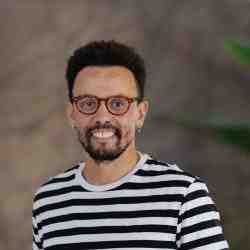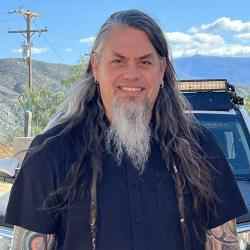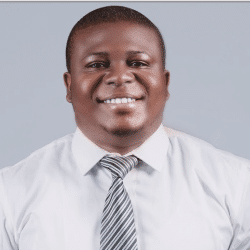Introdução
Roberto Siqueira Carneiro is reintroducing rare monkeys into threatened ecosystems, starting with the remnants of Brazil's Atlantic rainforest. Since the monkey can not survive unless the forest is healthy, engaging popular support for the monkeys should be an effective means of protecting the forest as well.
A nova ideia
Roberto, who combines a lifelong love of monkeys with a broad environmental commitment, is setting out to save a number of Brazil's endangered species of monkeys and their habitat. He will do so from na independent center he is creating in his home state of Pernambuco in Brazil's Northeast.Using new techniques he has developed, he will breed unusually strong monkeys at this center. He and his colleagues will be busy educating both the public and local residents about the monkeys and the forest.In order to increase reproduction among and the health of his monkeys, Roberto has introduced several innovations. One example is a feeding program involving live fish. The monkeys must "hunt" for the fish and compete for "hunting space" and for the catch. The competition has promoted stronger, healthier animals and increased reproduction rates very significantly. The Rio de Janeiro Zoo has recently adopted this practice from Roberto. He plans to continue this sort of practical research and experimentation into new ways of feeding the primates to ensure their emotional and physical well-being.This breeding work will eventually make Roberto's center self-sufficient. Along with rare "Golden Lion" tamarins, he is breeding and selling the common Muriqui monkeys for use in important health research. Besides providing working capital for his efforts at reintroducing the tamarins, this facet of Roberto's work will ensure that research teams rely less often on capturing tamarins from the wild. It is also an idea other environmental groups lacking secure financial support may emulate.Roberto's chief focus, however, is on saving endangered monkey species like the golden tamarin, as well as the natural habitats they need to prosper. He helps the monkeys multiply in his center and then helps reintroduce them into ecosystems that his educational work has made viable once again. His educational work seeks both to build general popular support (and pressure) and also to work more directly with local residents, the sugar companies and others who own the land, and others concerned directly with the areas where he is working.His general education work focuses on the remnants of the Atlantic rainforest, especially in the Northeast. He is in close touch with and helps other concerned groups, especially Sao Paulo's SOS Mata Atlantica, the chief defender of what's left of the forest along Brazil's southern coast. He and his colleagues are already the most vigorous defenders of the forest in the north.Roberto's work now focuses especially on two remaining islands of the Atlantic rainforest in Pernambuco, the Mata Corrego do Macaco and at Muriqui. He is pursuing several strategies at once.By reintroducing the golden tamarins after extensive local education and persuasion and engagement of the broader public, he focuses the public's attention on the issue.By working closely with local hunters, he hopes to help them distinguish endangered species from their common cousins.By engaging both the press and the public, he adds pressure to his persuasion.By helping build a coalition of concerned groups he hopes to spread both his education and the pressure.
O problema
Although Brazil is still the richest resource for primatological fauna in the world, with over 60 varieties, certain species of primates have become endangered.The Mata Atlantica, a tropical rain forest which once ran from northern Brazil to southern Brazil along the coast, now covers only two percent of its original area. Among the other environmental devastations wrought by this deforestation, the lack of a suitable, safe habitat has threatened the existence of various animals, including these primates.Locals seeking monkeys for food and others capturing them for laboratory experiments show little regard for the difference between the common Muriqui monkey and the much more rare golden tamarin, accelerating this decline.
A estratégia
Right now Roberto is working to obtain land from the town government in Muriqui, Pernambuco, on which he can house his Center for Primatological Studies. Since he first became involved in primate work five years ago, Roberto has been operating out of cages in his backyard. With the land grant, he will build cages and support buildings to support the work of the Center.As the Center's breeding thus expands, Roberto will gradually build his financial base. He estimates that within three to five years, he will have 50 breeding couples of Muriqui monkeys, providing $60-70,000 of income each year.As this financial base develops, Roberto will be increasingly able to concentrate on his work breeding and reestablishing the golden tamarins. In the twelve months prior to his selection, Roberto received substantial acclaim for three live births of tamarins in captivity. His continuing innovations promise further to stimulate their rate of reproduction.
A pessoa
Roberto grew up in an ecologically aware family. His father, a doctor and ecologist, often took Roberto on trips to the interior of Pernambuco, where they observed and discussed environmental problems. Roberto describes himself as "self-educated" with regard to his current work. He began studying animals on his own at age eight, and began working with primates five years ago. He has traveled extensively throughout Brazil, learning about its rich environment and finding other like-minded groups.




